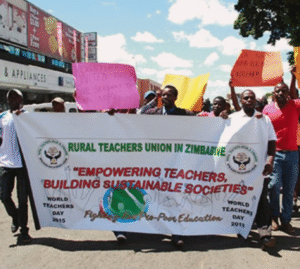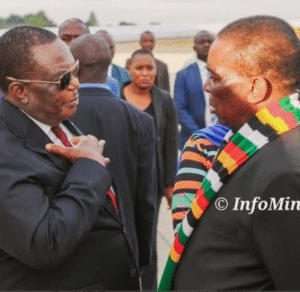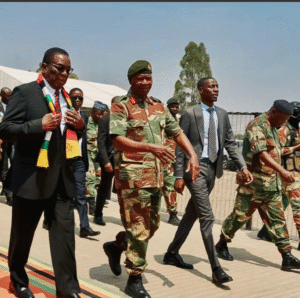THE POWER OF VOTING: ADDRESSING UNFAIR ELECTION PRACTICES BY ZANU-PF
The Zimbabwe African National Union-Patriotic Front (ZANU-PF), Zimbabwe’s ruling political party, has come under heavy criticism for its approach to election conduct, leading to significant discourse around electoral fairness. Critiques point to practices that create an unlevel playing field, a perceived atmosphere of intimidation, and alleged misinformation campaigns suggesting that individual votes carry little weight. However, it’s essential to understand that the power of the democratic process lies in every citizen’s hands. Every single vote matters, particularly when cast in support of alternatives like the Citizens’ Coalition for Change (CCC).
1. An Unlevel Electoral Field
ZANU-PF has held power in Zimbabwe since the country’s independence in 1980. This longstanding reign has allowed the party to shape the political landscape significantly, leading to accusations of gerrymandering and manipulation of electoral boundaries. The party’s critics argue that the state’s institutions, including the Zimbabwe Electoral Commission, have become politicised, functioning more as extensions of ZANU-PF rather than independent entities.
Moreover, reports have emerged of the ruling party exploiting state resources for campaigning purposes. Instances of partisan food aid distribution, where assistance is allegedly given preferentially to ZANU-PF supporters or withheld from opposition areas, have been cited. Such tactics create an unfair advantage for ZANU-PF and place other parties at a disadvantage, undermining the principle of free and fair elections.
2. Atmosphere of Intimidation
Another contentious issue is the alleged atmosphere of intimidation and violence, which critics say is perpetuated by ZANU-PF. Reports of threats against opposition supporters, arbitrary arrests, and alleged human rights abuses have raised significant concerns. Such actions, if accurate, not only breach international law but also contravene Zimbabwe’s constitution, which guarantees every citizen’s right to participate in the political process freely and without fear.
These allegations of intimidation tactics contribute to a climate of fear that can discourage citizens from expressing their political will openly, particularly if they support opposition parties.
3. Spreading Misinformation About Voting
Perhaps one of the most insidious allegations levelled against ZANU-PF is the purported spread of misinformation that voting doesn’t matter. Critics argue that this tactic is designed to foster apathy and disillusionment among the populace, especially those frustrated with the status quo. By convincing citizens that their votes don’t count, the party can maintain its hold on power with less resistance.
However, this notion couldn’t be further from the truth. In a democratic society, every vote counts.
4. The Power of Voting
Voting is not just a right; it’s a responsibility. It’s the most direct way for citizens to shape their nation’s future, ensuring that their voices are heard and their interests represented. Each vote cast for alternatives, such as the CCC, chips away at the hegemony of the ruling party, allowing for greater political diversity and balance.
Encouragingly, Zimbabwe has seen a rise in civic education initiatives, often driven by NGOs and international bodies, to counter misinformation and promote the importance of voting. These programmes aim to empower citizens, reminding them that they hold the power to determine their nation’s trajectory through their vote.
Moreover, the power of voting extends beyond individual choices. Collectively, voters can shape the national conversation, pushing for electoral reforms, greater transparency, and accountability in governance. These collective actions can challenge and eventually change unfair practices, leading to a more democratic society.
While critics argue that ZANU-PF is creating an unfair environment around elections, it’s essential not to lose sight of the power of the democratic process. Voting is a powerful tool that every Zimbabwean




